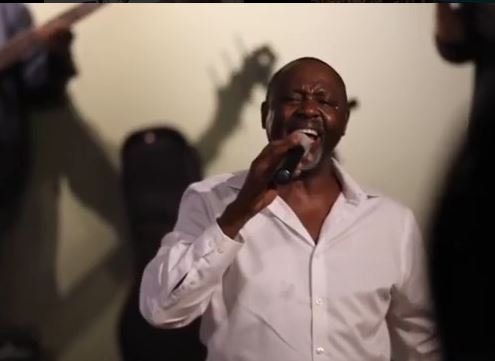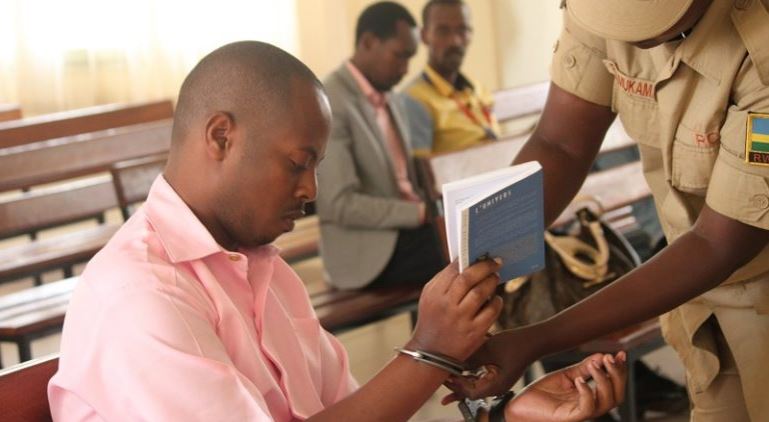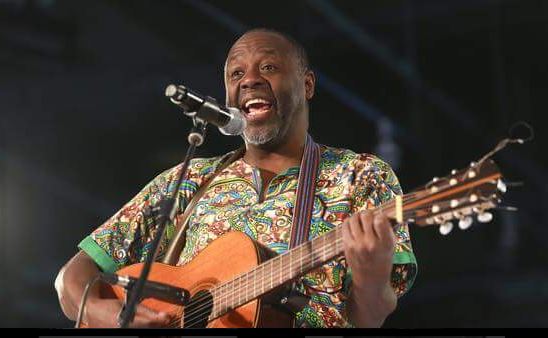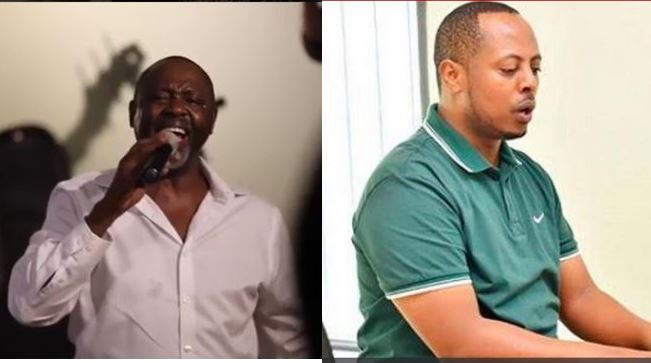An unknown author’s quote says that “Courage is being yourself every day in a world that tells you to be someone else”. Another quote attributed to Winston Churchill is stating that: “while fear is a (normal) reaction, courage is a (personal) decision”.
Kizito Mihigo and Jean Paul Samputu. They are both two Rwandan famous songwriters and activists. While we are still celebrating the well purposed life of Kizito Mihigo we are taking these paragraphs to talk about Jean Paul Samputu, another renown Rwandan musician, who decided to embrace the steps of being an activist for peace and reconciliation among Rwandans after experiencing the bitterness of the 1994 genocide just as Kizito Mihigo did.
Samputu is almost 20 years older than Kizito. He started his career even before the latter was born. Those who follow the history of Rwandan music would not easily dissociate Samputu with Ingeli and Nyampinga bands. He marked the two before starting his solo career.

Some commonalities are strangely characterizing Kizito Mihigo and Jean Paul Samputu.
Both are originated from the southern part of Rwanda a region that has been deeply affected by the conflict post-1973 President Habyarimana coup against former President Kayibanda, a conflict that will be known as Nduga-Kiga. Amplified by the pre-existing Hutu-Tutsi problematic resulted from the past but especially the 1959 events, the Nduga-Kiga conflict is until now among the unresolved disputes that enlarged the already hole that destroyed the Rwandan national unity for decades until to date. It is under that setting that Kizito Mihigo and Jean Paul Samputu will see the genocide happening in April 1994. They will all lose they close relatives and parents and themselves will miraculously escape and survive.
Both will become famous thanks to their musical talents. The details are known. They also will be fervent believers, Kizito in Roman Catholic faith and Samputu in the New Born Again Christian Movement.
Beside their religious views, the two artists decided to become activists for a noble cause: Peace and Reconciliation in a destroyed Rwandan nation and society. They decided to use their wounds to heal the wounded.
However they did it differently. The point that makes difference between Samputu and Kizito approach is the “COURAGE” The one we mentioned in the introduction of this article. Kizito Mihigo did what few can do. He decided to conquer the fear and reversed the current wrongful narrative of Kagame and his partisans who tirelessly work to maintain a part of Rwandans under the perpetual shame of guilty (Hutus) and others under the eternal sentiment of victims (Tutsis). A well calculated divide and rule policy. Kizito will use his voice to progressively destroy that narrative until his ultimate song “Igisobanuro cy’urupfu” for which he paid his live (https://www.youtube.com/watch?v=S2n8hTQl2lI ). In writing that song Kizito will only listen to his heart: he wrote: “to all those brothers and sisters killed in atrocities not qualified as genocide, they are humans too I remember them and pray for them”. NABO NI ABANTU. A powerful message that contradicts the established RPF dehumanizing narrative against a part of Rwandans. He did it openly with a decisive instinct and significantly he did it on the battlefield in Rwanda. He obviously knew what was awaiting him. Bernard Makuza and Ines Mpampara transmitted personally the message from the unhappy President announcing that if he doesn’t apologize he is a dead man. He did but he died.

Did Samputu do nothing? Nope. He did a lot. After the genocide he rushed to his village. No good news awaited him only just to realize that the murderer of his family in the 1994 genocide was nobody else but an old childhood friend. Samputu cracked. He felt devastated. After a long period of depression, anger, and bitterness, Samputu discovered the healing in forgiveness. He forgave the murderer of his parents. He immediately started preaching about forgiveness worldwide (https://www.youtube.com/watch?v=gRVjfRXt1Mc). It is with that move that he started being seen differently in Kigali by those who support the authoritarian regime which has foundation in historical and political manipulations on genocide and the above mentioned policy of divide and rule whose objectives are very far away of forgiveness and reconciliation needed in Rwanda.
Samputu decided to keep the low profile. Instead of standing up and talk openly he decided to speak with a much more low voice about forgiveness referring to his faith and preferring the world capitals and big cities to speak up than to go and preach his own people as Kizito decided in 2011 when he decided to leave Europe and go to start his foundation in Rwanda. Even on rare visits in Rwanda, Samputu chose to be relatively quite as it is what makes happy and tame the brutal Kagame’s RPF machine.
However, Samputu’s low profile will be tasted by the political motivated brutal assassination of his young brother, genocide survivor Kizito Mihigo early this year. In his first appearance on a Youtube Channel to talk about it, Samputu was seen as a shattered man. He did everything to retain his emotions (https://www.youtube.com/watch?v=n1TFoLdclhs).
After that interview, Samputu will appear again, against all odds, on the list of the panellists of activists who have gathered to commemorate together the 26th anniversary of the 1994 genocide. Those brothers and sisters from different backgrounds, without distinction of what was considered as ethnic groups have decided to sustain the legacy of Kizito Mihigo. They were honoured to be accompanied by Jean Paul Samputu a champion of forgiveness in their famed RIBARA UWARIRAYE commemorative online show. But guess what happened?! The regime in Kigali activated its network and a strong intimidating pressure was put on Samputu’s shoulders who decided to listen to his fear than his courage and retracted at the last minute from the announced panellists! Many were surprised by that move of the artist.

It went like that until very recently when Jean Paul Samputu appeared again to be among the judges of the talent competition organized to commemorate the birthday of Kizito Mihigo as a continuation of his life celebration. Now the pressure became heavy. Many have listened to audios insulting the memory of Kizito and intimidating Samputu for having joined his memorial. They were ordering him to leave that association with “enemies of Rwanda”!
Ni kuki ngukunda ukanyima amatwi, ukantera kubabara…… those are the lyrics of one of the Samputu famous old songs in which he sends a message to someone he loves but who doesn’t love him in return. Even now his forgiveness message is echoing to him messages of hatred and anger from his siblings.
Will Samputu listen to his heart of courage or to the intimidating audios of extremists?
We wish him the best.

